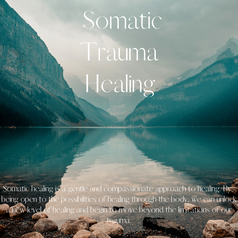In my experience as a transformational coach, I have seen firsthand how self-compassion can transform one's life. It’s a powerful tool that can help you navigate the ups and downs of life with ease.
What are triggers?
First, let's define what triggers are. Triggers are situations or events that cause an emotional response within us. These can include a tone of voice, a specific word or action, or even certain types of music. Triggers can be positive or negative, depending on the situation.
How does self compassion help?
When we experience a trigger, our natural response is often one of self-criticism or self-judgment. We may think, "Why did I react that way? I should know better!" or "I'm so stupid for feeling this way." However, self-compassion encourages us to approach our triggers with kindness and understanding.
By practicing self-compassion, we can reframe our thoughts about our triggers and reduce their impact. Instead of beating ourselves up for our emotional response, we can acknowledge our feelings and give ourselves the compassion we need to move forward.
So, how do we practice self-compassion? Here are a few tips:
1. Notice your thoughts: The first step is to become aware of your self-talk when you experience a trigger. What are you saying to yourself? Are you being kind or critical?
2. Show yourself kindness: Once you recognize any negative self-talk, talk to yourself as you would to a friend. Imagine what you would say to a friend in the same situation and give yourself that same kindness.
3. Accept your emotions: Instead of resisting or denying your emotions, allow yourself to feel them. Accept that it's okay to feel the way you do and that your emotions are valid.
4. Remember imperfection is normal: No one is perfect, and we all make mistakes. Remember that it’s okay to mess up sometimes and that it's an opportunity to learn and grow.
5. Seek support: Don't be afraid to reach out to friends, family, or a coach for support. Talking about your triggers with someone else can provide a fresh perspective and help you process your emotions.
Overcoming triggers can be a challenging journey, but with self-compassion, it is possible to navigate them with grace and ease. Remember to be kind to yourself, accept your emotions, and seek support when needed. You have the power to transform your life and reclaim your peace.
xox Genia



 RSS Feed
RSS Feed